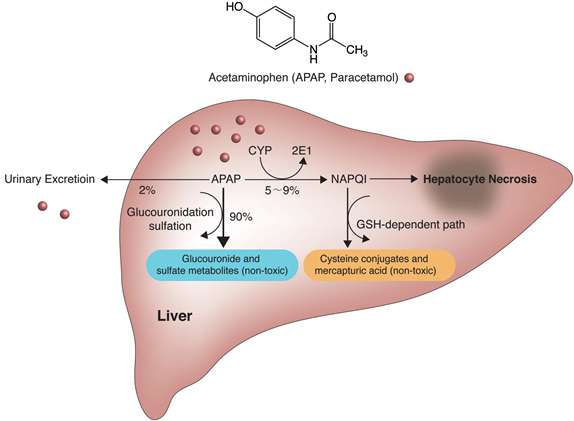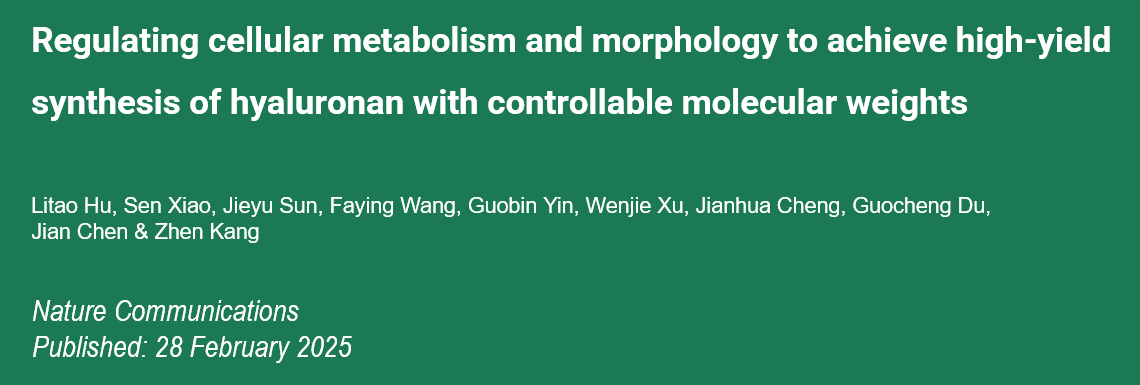The liver is the body’s main detoxification organ, responsible for removing toxins, metabolic waste and harmful chemicals from the blood, thereby protecting the body from potentially toxic damage.
However, in the modern lifestyle, people are often exposed to various environmental toxins and chemicals, which can increase the burden of the liver, lead to decreased detoxification function, and even trigger chronic diseases.
In order to support the detoxification function of the liver, A variety of nutrients are needed, in addition to the basic amino acids, vitamin A, vitamin B group, magnesium, zinc, selenium, manganese, etc., intake of specific nutrients is necessary.
7 major nutrients that enhance liver detoxification function and their effects:
1. Vitamin C
Vitamin C is essential for liver detoxification and plays an important role in the first and second stages of liver detoxification.
The first stage mainly involves the activation of the cytochrome P450 enzyme system, while the second stage requires antioxidants such as vitamin C to protect the detoxifying enzymes from oxidative damage.
Vitamin C enhances the liver’s detoxification capacity by increasing glutathione (GSH) synthesis in the liver.
Vitamin C also participates in the detoxification process of heavy metals by reducing toxic forms of harmful heavy metals such as lead and arsenic to help discharge and reduce the damage of heavy metals to the liver.

2. Folic acid
Participate in the second stage of methylation of liver detoxification:
A key pathway for liver detoxification is the methylation reaction, a process that requires the conversion of folate to its active form 5-methyltetrahydrofolate (5-MTHF), which then transfers the methyl group to the harmful substance, allowing it to be converted into a harmless metabolite.
Folic acid can also protect the liver from toxic substances by regulating methionine metabolic pathways.
Studies have shown that folic acid supplementation can reduce alcohol-induced liver damage, reduce oxidative stress levels, and restore liver enzyme function.
In non-alcoholic fatty liver disease (NAFLD) and alcoholic liver disease (ALD), folic acid has also shown potential protective effects, improving liver function by regulating lipid metabolism and inflammatory responses.
3. Coenzyme Q10
Improves mitochondrial function and supports the normal functioning of the liver:
Coenzyme Q10 can enhance the energy metabolism of liver cells and promote the detoxification function of liver.
It supports the normal functioning of liver cells by improving mitochondrial function and increasing the production of ATP.
Liver cell repair and regeneration:
The high content of coenzyme Q10 in the liver makes it an important component of liver protection and detoxification.
Studies have shown that coenzyme Q10 can improve the repair and regeneration ability of liver cells, reduce the burden of cytotoxin, and alleviate liver injury.

Inhibit lipid peroxidation:
Coq10 can also reduce the burden on the liver by inhibiting lipid peroxidation and reducing the production of harmful metabolites.
Reduces liver enzyme levels:
Coq10 has also been found to reduce levels of liver enzymes, such as ALT and AST, which are important biochemical markers for assessing liver function.
Supplementation with coQ10 was able to significantly reduce the activity of these enzymes, indicating its positive effects on liver health.
4. Glutathione
Glutathione (GSH) is a tripeptide composed of glutamic acid, cysteine and glycine, which has significant detoxification function.
It is widely present in cells, especially in the liver, is an important natural antidote for the human body.
The second stage of the liver’s detoxification process, glutathione converts fat-soluble toxins into water-soluble forms via the glutathione-S-transferase (GST) system, thus helping to excrete them from the body.

Promotes liver cell regeneration:
Glutathione not only helps detoxify, but also promotes regeneration and repair of liver cells.
When the liver damaged by toxins or drugs, glutathione helps repair damaged liver cells and maintain liver function.
Antioxidant effect:
Glutathione has a powerful antioxidant capacity that can scavenge free radicals, reduce oxidative stress, and protect liver cells from damage.
This antioxidant property is essential for maintaining liver health, especially during liver damage or disease, and glutathione is effective in reducing the damage caused by oxidative stress.
5. taurine
Taurine, chemically known as beta-taurine, is a sulfur-containing non-protein amino acid that is widely found in animals, especially in high concentrations in bile, muscle, heart, and nerve tissue in mammals.

Antioxidant effect:
Taurine, through its antioxidant effects, can effectively reduce the level of oxidative stress in the liver.
For example, during arsenic (As) -induced oxidative stress in the liver, taurine can maintain the normal ratio of glutathione (GSH) to glutathione peroxidase (GSSG) and increase the activity of antioxidant enzymes, thereby reducing the damage of oxidative stress on the liver.
Reduce inflammation:
Tauronic acid also fights liver toxicity caused by chemicals such as carbon tetrachloride (CCl4) and arsenic trioxide (As2O3), protecting the liver by reducing inflammation, apoptosis and necrosis.
Promote bile secretion:
Taurine also plays an important role in liver metabolism. It is able to promote the synthesis and excretion of bile acids, thereby helping to remove toxins and waste products from the body.
Prevention of fatty liver:
Taurine is also involved in the metabolism of cholesterol, by increasing the solubility and excretion rate of cholesterol,
reducing plasma cholesterol levels, thereby preventing the occurrence of fatty liver.
It is important to note that although taurine has a significant protective effect, excessive intake of taurine may interfere with the normal metabolic function of the liver, resulting in abnormal liver function.
6. Alpha lipoic acid
Alpha-lipoic acid (α-Lipoic acid) is a naturally occurring sulfur-containing medium chain fatty acid with a variety of biological activities and medicinal values.
It is widely found in the human body and is mainly consumed through foods such as spinach, liver and saccharomyces cerevisiae.

Metal chelation:
Alpha-lipoic acid can chelate heavy metal ions (such as cadmium, lead, etc.), reducing the toxicity of these metals to the liver, thereby reducing the detoxification burden of the liver.
Promote glutathione synthesis:
Glutathione is an important detoxifying substance in the liver, and α-lipoic acid can activate the Nrf2 signaling pathway and promote the synthesis of glutathione,
thereby supporting the detoxification function of the liver.
Improve liver function indicators:
Studies have shown that α-lipoic acid can significantly increase the activity of antioxidant enzymes such as superoxide dismutase (SOD) and glutathione peroxidase (GPx) in the liver, and reduce the level of malondialdehyde (MDA), thereby improving liver function.
Reduce liver damage:
Alpha-lipoic acid can reduce alcoholic liver damage, non-alcoholic fatty liver disease,
and liver damage caused by various toxins (such as carbon tetrachloride, microcystin, etc.).
7. curcumin
Curcumin is a natural polyphenol compound extracted from the rhizome of Curcuma longa L., and its main pharmacological effects include anti-oxidation, anti-inflammation, anti-tumor, hypolipidemia, anti-microbial and so on.

Promotes the activity of liver detoxification enzymes:
Curcumin enhances the activity of detoxifying enzymes in the liver, such as glutathione S-transferase (GST) and the CYP450 enzyme series.
These enzymes play a key role in liver metabolism and detoxification, helping to remove harmful substances from the body.
Protect your liver from toxins:
Curcumin has a protective effect on liver injury caused by a variety of toxins (such as aflatoxin, carbon tetrachloride, etc.).
It reduces liver cell damage and death by reducing the level of toxic metabolites of these toxins in the liver.
Promotes biliary secretion and excretion:
Curcumin can stimulate the secretion and excretion of bile,
helping to remove excess waste and toxins from the body, thereby supporting the detoxification function of the liver.
Other potential mechanisms:
Curcumin also further protects the liver by regulating a variety of signaling pathways (such as Nrf2, NF-κB, etc.),
enhancing the antioxidant defense capacity of the liver and inhibiting the expression of inflammatory factors.
reference
- Kris Ke Shyang See,Liver Regeneration: The Myth of Prometheus in Modern Medicine A Case Report.A Case Report. J Regen Biol Med. 2023;5(5):302-1.
- Minlan Yang.et al. Role of Folate in Liver Diseases.Nutrients 2024, 16, 1872.
- Joydeep Das,et al. Protective Role of Taurine against Arsenic-Induced
Mitochondria-Dependent Hepatic Apoptosis via the Inhibition of PKCd-JNK Pathway.PLoS ONE.September 2010 | Volume 5 | Issue 9 | e12602. - Li Li,et al. Protective effects of oxymatrine against arsenic trioxide-induced liver injury.Oncotarget, 2017, Vol. 8, (No. 8), pp: 12792-12799.
- Mohammad Hosein Farzaei,et al. Curcumin in Liver Diseases: A Systematic Review of the Cellular Mechanisms of Oxidative Stress and Clinical Perspective.Nutrients 2018, 10, 855; doi:10.3390/nu10070855.
- Chongshan Dai,et al. Aflatoxin B1 Toxicity and Protective Effects of Curcumin:
Molecular Mechanisms and Clinical Implications. - Mohammad Hosein Farzaei,et al. Curcumin in Liver Diseases: A Systematic Review of the Cellular Mechanisms of Oxidative Stress and Clinical Perspective.Nutrients 2018, 10, 855; doi:10.3390/nu10070855.
- Chongshan Dai,et al. Aflatoxin B1 Toxicity and Protective Effects of Curcumin:Molecular Mechanisms and Clinical Implications.




